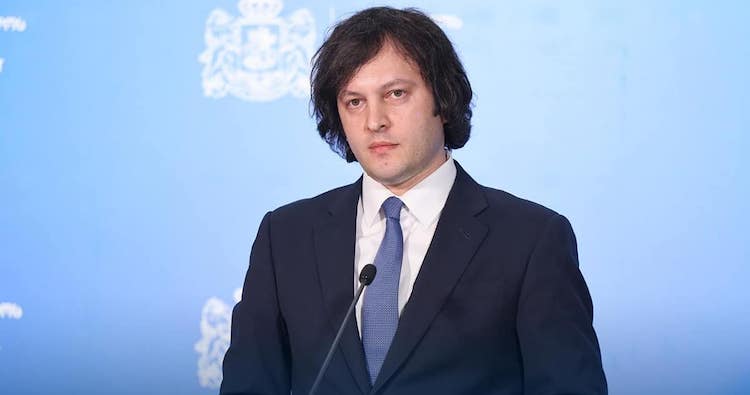Georgian PM says President’s action plan for uniting opposition “first attempt of creating foreign agents register”

The Georgian Parliament on Tuesday overrode a veto placed by the country’s President and adopted the original version of the controversial domestic law on transparency of foreign influence, which calls for the registration of non-commercial legal entities and media outlets in the country as “pursuing the interests of a foreign power” if they derive more than 20 percent of their funding from abroad, with 84 votes against four. Photo: Government Administration
Georgian Prime Minister Irakli Kobakhidze on Thursday claimed an initiative by the country’s President Salome Zourabichvili to unify domestic opposition parties ahead of the parliamentary elections in October was the “first attempt to create a register of foreign agents” in the country.
Kobakhidze’s comments followed Zourabichvili’s initiative to “rebuild trust and to forge a new political reality” in the country, and a statement by opposition United National Movement, Akhali, Lelo, Droa, Girchi - More Freedom, European Georgia and Strategy Agmashenebeli parties that expressed readiness to sign the President’s charter for the purpose last week.
The charter envisages abolishing “laws harmful to the European path” of the country, “liberating the judiciary” and “restoring trust”, ensuring a “fundamental reform” of the Supreme Council of Justice and creating “appropriate conditions for holding free and fair elections”.
In his response, the PM said “we had said before that [...] all these people are one political force, which we call the ‘Collective National Movement’”, alleging “now the list of this [group] is being formalised” with the move.
The Georgian Parliament on Tuesday overrode a veto placed by the country’s President and adopted the original version of the controversial domestic law on transparency of foreign influence, which calls for the registration of non-commercial legal entities and media outlets in the country as “pursuing the interests of a foreign power” if they derive more than 20 percent of their funding from abroad, with 84 votes against four.
The PM said the Government had “studied the practice of Strasbourg” before adopting the law, claiming it was “completely consistent” with the practice of ECHR.
Asked whether the country’s Government would accept a ruling by the European Court of Human Rights if domestic non-governmental organisations made an appeal to it against the law, Kobakhidze said suspension of the law was a “qualitatively political decision before the legal consideration of the matter”.
The PM expressed hope the ECHR would “not be influenced by politics”, adding “everything will proceed based on the interests of our state”.
 Tweet
Tweet  Share
Share